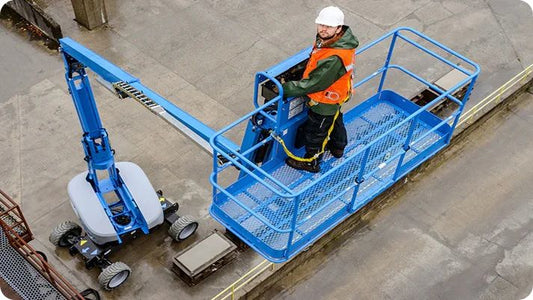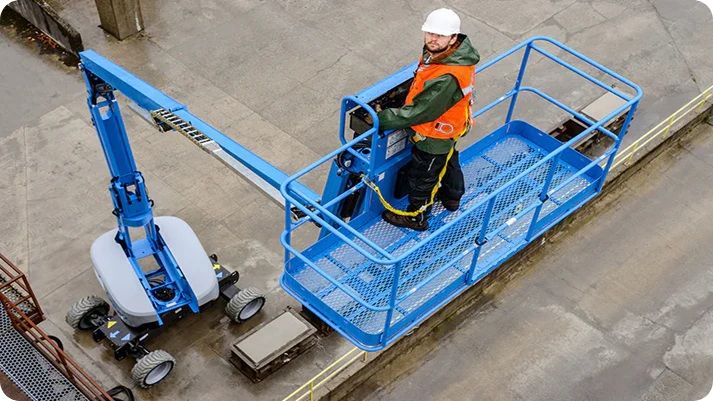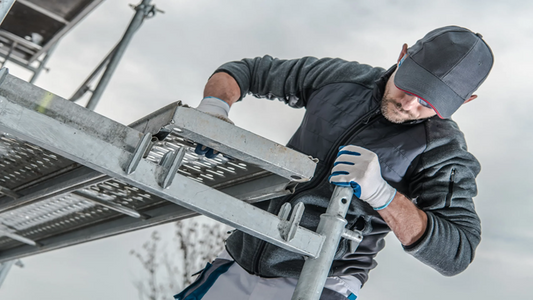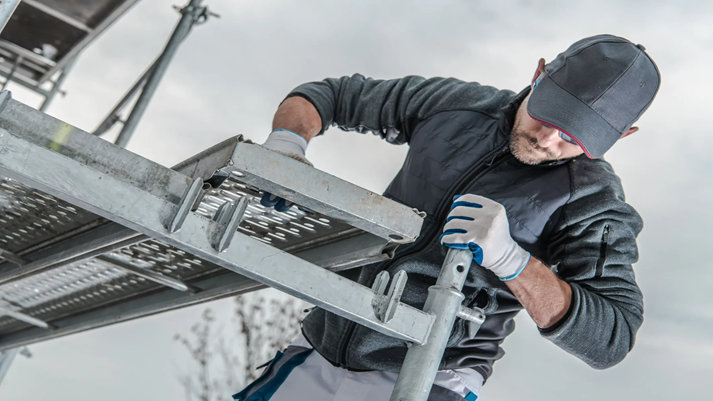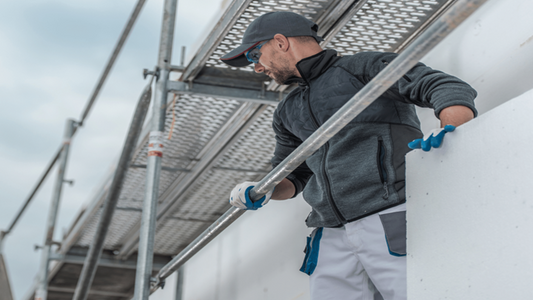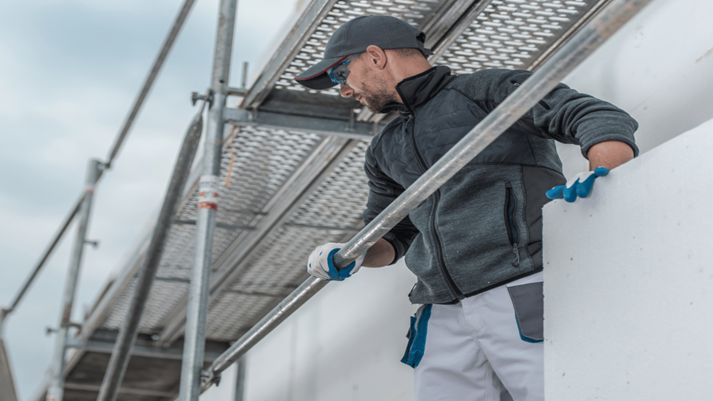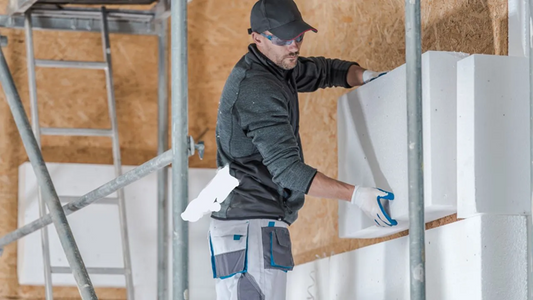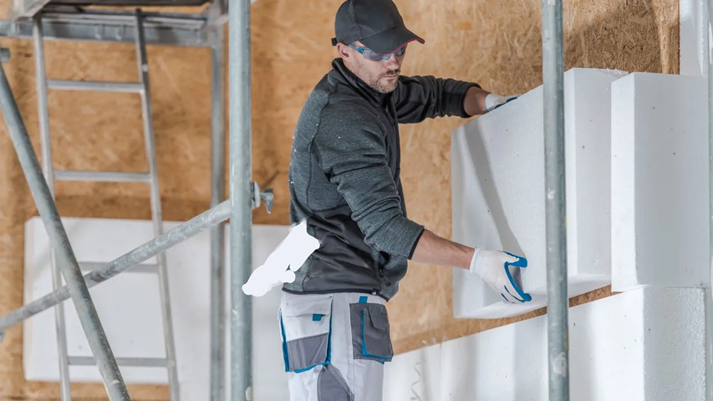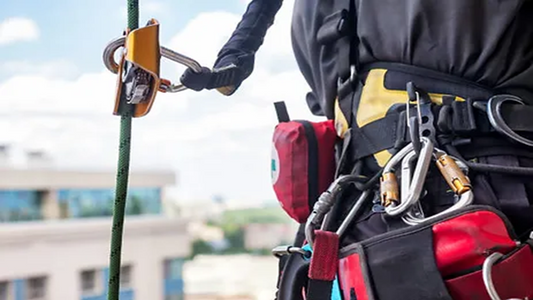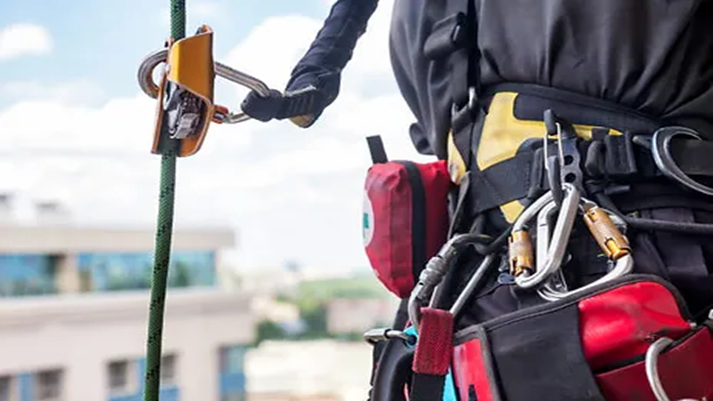The Norwegian Labour Inspection Authority and the Norwegian Marine Industry Authority (Havtil) are now issuing a strong warning against a dangerous practice in scaffolding construction that can have serious consequences for safety on the construction site. Several work accidents have shown that mixing scaffolding parts from different manufacturers can lead to deformations, broken components and connections that cannot withstand the load as an attachment point for fall protection.
Why is mixing scaffolding parts risky?
Senior engineer Rolf Engstrøm at the Norwegian Labour Inspection Authority explains that a growing tendency to use scaffolding components from different manufacturers – and to mix old and new parts – creates a great risk. In several accidents investigated, including a serious incident where a worker fell over 20 meters and suffered internal injuries, precisely such mixing has been a contributing factor.
“When scaffolding parts that are not designed to be used together are combined, it can lead to failure of the structure. This poses a direct danger to life and health,” emphasizes Engstrøm.
Stricter requirements and increased control from supervisory authorities
Both the Norwegian Labour Inspection Authority and Havtil are now announcing stricter requirements and more frequent inspections of scaffolding installations. Sigmund Andreassen, Chief Engineer at Havtil, points out the importance of all parties being able to document that the scaffolding has been built in accordance with current regulations and with a focus on safety.
“Our priority is to reduce the number of accidents when working at height. Therefore, we will require that both clients, coordinators and installers closely monitor that the scaffolding structures are safe,” says Andreassen.
Clear competence and documentation requirements when ordering
A recurring problem is the lack of clarity regarding the requirements during the ordering phase. The Norwegian Labour Inspection Authority emphasizes that clients must be clear about which safety requirements the scaffolding must meet, especially when it functions as edge protection when working on roofs and decks.
– All necessary technical documentation must be in place before the scaffolding is put into use, says Engstrøm.
“If you tamper, you take over the producer responsibility”
When scaffolding parts from different manufacturers are mixed, the company that assembles and uses the scaffolding in practice assumes manufacturer responsibility. This means that the employer must be able to document the scaffolding's technical properties, including calculations and tests.
– We have seen examples of such practices leading to deformed or broken parts, and that connectors cannot withstand the load as a fall protection point. This provides a false sense of security that can have fatal consequences, warns Andreassen.
Competence requirements for scaffolders when combining parts
Solid construction engineering expertise is required to ensure that a scaffold built from components from different systems is safe and compliant. According to the Norwegian Labour Inspection Authority and Havtil, such expertise is not achieved through regular scaffolding courses or certificates alone.
Proper training is crucial
For those of you who work with scaffolding – whether you are an installer, coordinator or client – it is crucial to have the necessary expertise to erect scaffolding in a safe and regulatory manner. This includes both knowledge of the correct components and documentation requirements.
At GTM Kompetanse, we offer flexible and online scaffolding courses that give you the knowledge you need to build safe and legal scaffolding structures.
Here is an overview of our most popular courses:
- Scaffolding user course – for those who will use scaffolding safely
- Scaffolding course 2–5 meters with fall protection – for those who will be installing smaller scaffolding
- Scaffolding course 2–9 meters – for those who will be building higher scaffolding and need more extensive training
- Scaffolding installer course over 9 meters – for those who want to become a certified scaffolding installer
Choose the right course – and contribute to a safer construction site.
(Source: Arbeidstilsynet.no)




